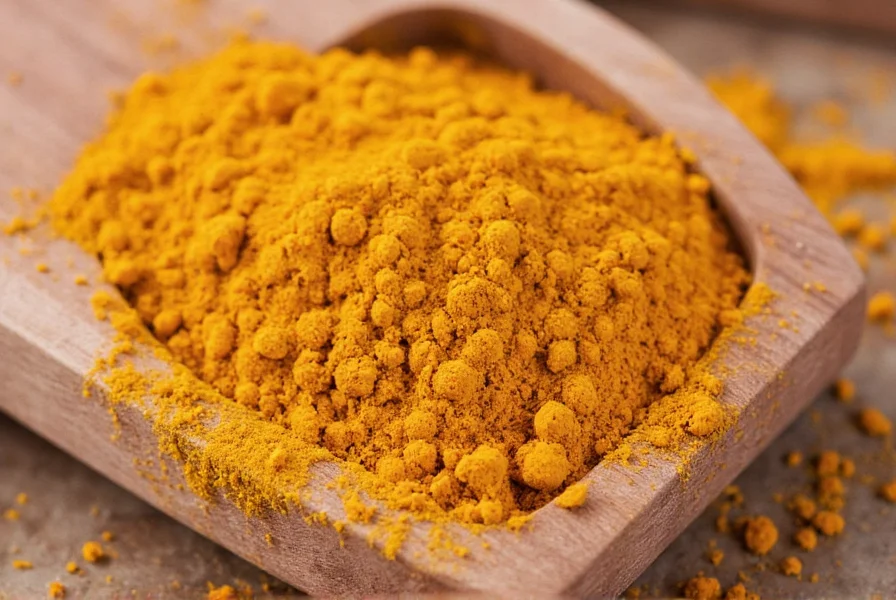Curcumin, turmeric's active compound, has gained global recognition for its potential health benefits. Yet many wonder: is turmeric bad for you? Understanding turmeric safety requires examining both its benefits and potential concerns through a scientific lens.
Understanding Turmeric and Its Active Components
Turmeric (Curcuma longa) is a vibrant yellow spice commonly used in Asian cuisine and traditional medicine for centuries. The primary bioactive compound, curcumin, accounts for most of turmeric's studied health effects. While culinary use involves whole turmeric root or powder, supplements often contain concentrated curcumin extracts that deliver much higher doses than food consumption.
Common Concerns: Is Turmeric Bad for Your Body?
When evaluating is turmeric bad for your health, research shows most concerns relate to supplement forms rather than culinary use. Let's examine the evidence behind common safety questions:
Digestive System Effects
Some people experience mild digestive issues when consuming large amounts of turmeric or curcumin supplements. Reported symptoms include:
| Symptom | Typical Trigger | Frequency |
|---|---|---|
| Stomach upset | Doses above 8 grams | Rare at culinary doses |
| Nausea | High-dose supplements | Occasional |
| Diarrhea | Supplements without piperine | Uncommon |
Studies indicate that can turmeric cause stomach problems primarily at supplement doses significantly higher than what's found in food. Most digestive issues resolve when reducing the dosage.

Who Should Exercise Caution with Turmeric?
Certain populations should consider potential risks when evaluating is turmeric bad for specific health conditions:
Individuals with Gallbladder Issues
Turmeric may stimulate bile production, which could worsen symptoms for people with gallstones or bile duct obstruction. Research published in the European Journal of Pharmacology suggests those with these conditions consult healthcare providers before using turmeric supplements.
People Taking Blood Thinners
Curcumin has mild anticoagulant properties. Those taking medications like warfarin should discuss turmeric supplement use with their doctor, as does turmeric interact with blood thinners remains an important consideration.
Pregnant and Breastfeeding Women
While culinary turmeric is generally considered safe during pregnancy, high-dose supplements aren't recommended due to insufficient safety data. The American Pregnancy Association advises pregnant women to avoid turmeric supplements during pregnancy unless specifically recommended by their healthcare provider.
Safe Consumption Guidelines
Understanding how much turmeric is safe to consume daily helps maximize benefits while minimizing potential concerns:
- Culinary use: 1-3 grams of turmeric powder daily is generally safe for most adults
- Supplements: Most studies use 500-2,000 mg of curcumin daily
- Long-term use: Limited data exists for continuous supplement use beyond 8 months
The Joint FAO/WHO Expert Committee on Food Additives established an acceptable daily intake of 0-3 mg per kilogram of body weight for curcumin. For a 150-pound person, this translates to approximately 200 mg of curcumin daily.
Turmeric Quality Matters
When considering is turmeric bad because of contaminants, quality becomes crucial. Some turmeric products, particularly from certain regions, have been found to contain:
- Lead chromate (added to enhance yellow color)
- Excessive levels of heavy metals
- Fillers or adulterants
Choose reputable brands that provide third-party testing results. The presence of these contaminants, not turmeric itself, causes is turmeric bad for your liver concerns in some cases.
Benefits vs. Risks: A Balanced Perspective
When evaluating is turmeric bad for you overall, consider both sides of the equation. Turmeric offers potential benefits including anti-inflammatory effects, antioxidant properties, and possible support for joint health. For most people using it in culinary amounts, the benefits significantly outweigh potential risks.
The World Health Organization recognizes turmeric as generally safe, and the FDA classifies it as GRAS (Generally Recognized As Safe) for food use. Concerns primarily arise with:
- Extremely high supplement doses
- Poor quality products with contaminants
- Specific medical conditions or medication interactions
Practical Recommendations
To safely enjoy turmeric's potential benefits while addressing concerns about is turmeric bad for health:
- Start with culinary amounts in food before trying supplements
- Choose high-quality supplements with third-party verification
- Consider taking turmeric with black pepper (piperine) to enhance absorption
- Consult your healthcare provider if you have medical conditions or take medications
- Discontinue use if you experience adverse effects
Conclusion
The question is turmeric bad for you doesn't have a universal yes or no answer. For most people using turmeric as a spice in cooking, it's not only safe but potentially beneficial. Concerns primarily relate to high-dose supplements, specific health conditions, or low-quality products. By understanding appropriate usage and potential interactions, most individuals can safely incorporate turmeric into their diet while minimizing any risks.
Frequently Asked Questions
Can turmeric damage your liver?
Pure turmeric is not known to cause liver damage when consumed in typical food amounts. However, rare cases of liver issues have been reported with high-dose supplements, often related to product quality issues rather than turmeric itself. People with existing liver conditions should consult their doctor before taking turmeric supplements.
Is it safe to take turmeric every day?
Yes, culinary amounts of turmeric (about 1-3 grams of powder daily) are generally safe for daily consumption. For supplements, most studies show safety for daily use up to 8 months, but long-term daily supplement use beyond this hasn't been thoroughly studied. It's advisable to take breaks from supplementation and consult a healthcare provider for extended use.
Who should not take turmeric supplements?
People with gallbladder disease, those taking blood thinners, and individuals scheduled for surgery should avoid turmeric supplements without medical approval. Pregnant women should avoid supplements though culinary use is generally safe. People with hormone-sensitive conditions should also consult their doctor, as turmeric might affect hormone levels.
What are the negative side effects of too much turmeric?
Excessive turmeric consumption, particularly from supplements, may cause digestive issues like nausea, diarrhea, or acid reflux. Very high doses might lead to dizziness or headaches. In rare cases, extremely high doses could potentially cause abnormal heart rhythms. Most side effects occur with supplement doses significantly exceeding recommended amounts.
Does turmeric interact with medications?
Yes, turmeric may interact with blood thinners (like warfarin), diabetes medications, and drugs metabolized by certain liver enzymes. It might enhance the effects of anticoagulants, potentially increasing bleeding risk. If you take any prescription medications, consult your healthcare provider before starting turmeric supplements to avoid potential interactions.











 浙公网安备
33010002000092号
浙公网安备
33010002000092号 浙B2-20120091-4
浙B2-20120091-4